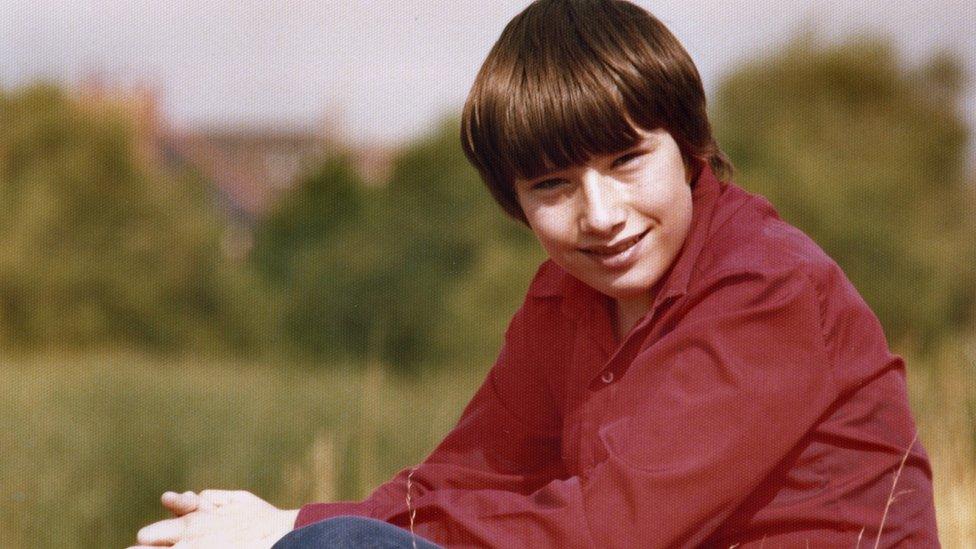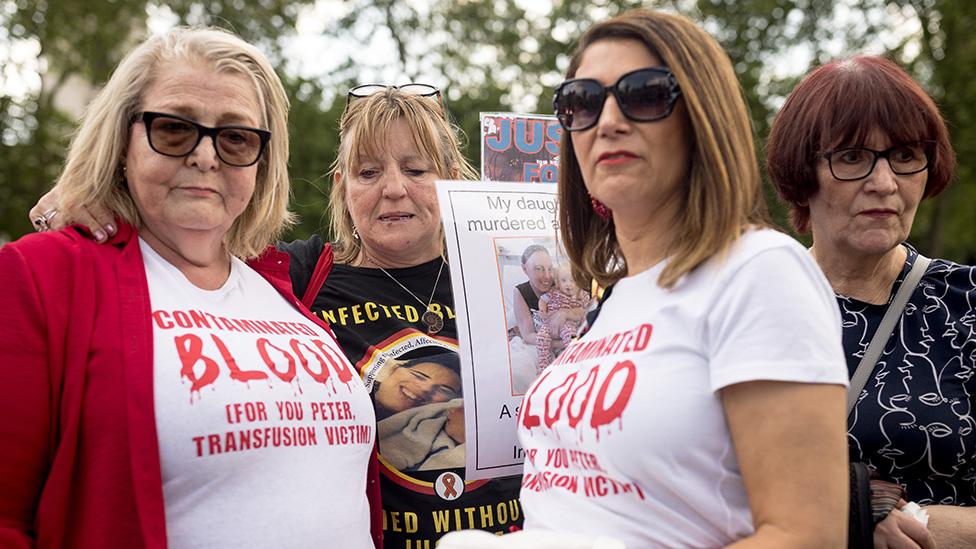Blood scandal victim says he is still traumatised decades later
- Published
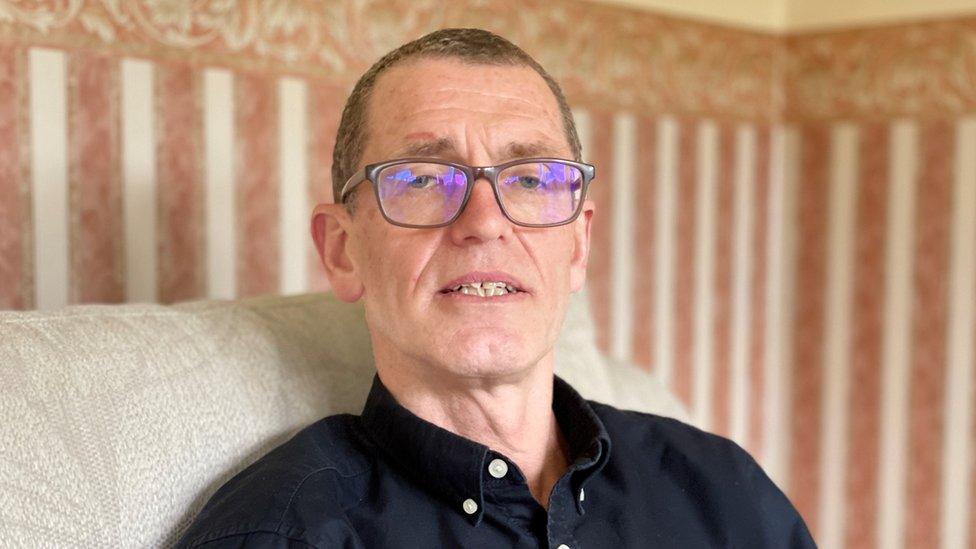
Roger Newman said he missed a lot of school after contracting HIV and hepatitis C from contaminated blood products
A man who contracted HIV, hepatitis B and hepatitis C after being given infected blood as a teenager says he is still traumatised decades later.
Roger Newman from Whitstable, Kent, was among 30,000 patients affected in the 1970s and 80s,
Speaking ahead of the final report by the Infected Blood Inquiry, external, Mr Newman said: "The victims deserve the truth to be told and justice to be done."
He says he remains in therapy because of the impact of what happened.
A shortage of blood products in the UK in the 1970s and 80s meant they were imported from the US.
High-risk donors, such as prisoners and drug addicts, provided the plasma for the treatments that were infected with potentially fatal viruses including hepatitis C - which attacks the liver resulting in cirrhosis and cancer - and HIV.
One blood product, known as Factor VIII, was seen to be highly effective for stopping bleeding, but also widely known to be contaminated with viruses.
Mr Newman and his brother both had haemophilia, a condition in which the blood does not properly clot.
He told BBC South East he was given Factor VIII as a child: "I pretty much immediately contracted hepatitis as soon as I started taking that. I became extremely unwell, I could literally hardly get out of bed and it meant I missed a lot of school.
"The materials I have been given have been filled with pathogens and viruses and i just feel like I've been treated appallingly and nobody really cares," he said.
The 56 year-old says he is still affected psychologically as well as physically.
"I'm needing to re-process things, areas where I feel I have been traumatised by all of the infections and the way it happened, I never knew how long I was going to live."
Mr Newman says he does not believe the scandal has had the full exposure it deserves.
"The average person on the street probably hasn't heard about it, it's not had the attention that it needs.
"It's shocking it's not more of a public story."
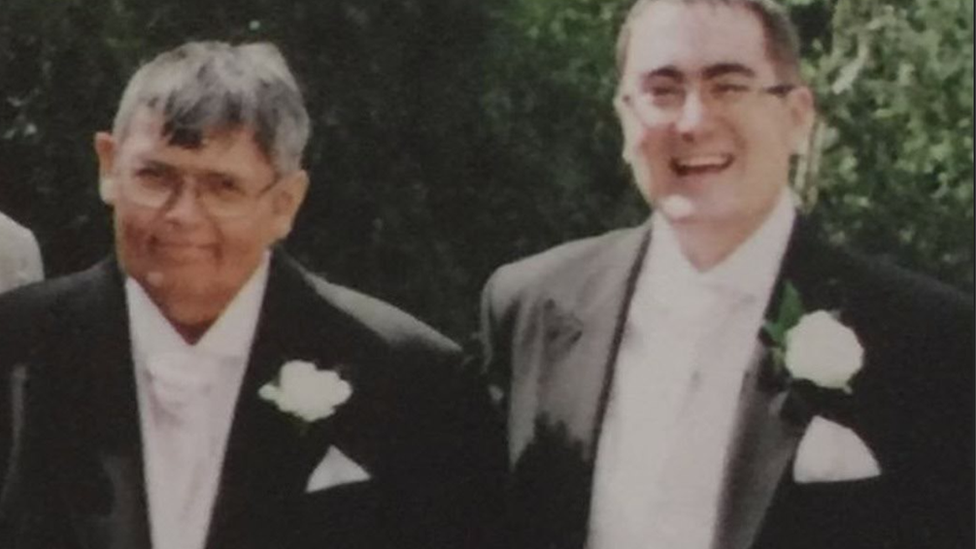
Peter Wratten died with hepatitis C, leaving his family feeling like they "didn't matter", his son Tim says
Tim Wratten from Ashford told the inquiry he was 16 when he discovered that his father Peter, a haemophiliac, had contracted hepatitis C after being contaminated with blood products. Peter Wratten died in 2011 aged 54.
He said: "For me it's been mentally draining. It's been heart breaking. Everyone thinks you are concocting some rubbish story, but no, it was just well hidden and kept very quiet under the radar."
Mr Wratten says wants more recognition for the impact on the family members of those infected.
"The children and the parents have been affected and it's like you don't matter."
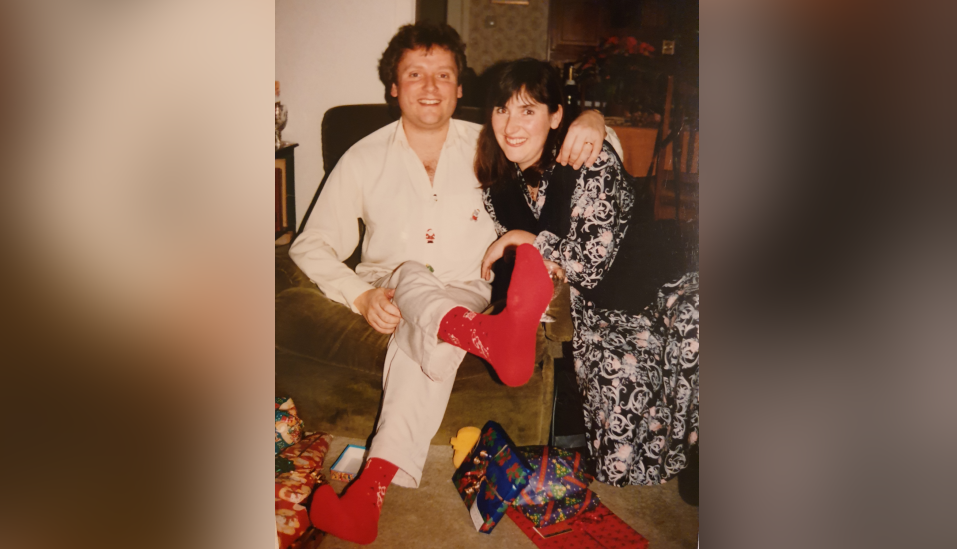
Amanda Patton says she wants public recognition after her brother Simon Cummings died aged 38
Simon Cummings was a radio presenter at County Sound in Guildford, Surrey in the 1980s and 90s, until he died in 1996 at the age of 38, after he had received contaminated blood.
His sister, Amanda Patton from Storrington in West Sussex, in a written statement to the inquiry, said: "I want public recognition and a genuine apology.
"All we've had are excuses."
She says she wants the grief that people have suffered to be acknowledged.
"People still don't really know the impact of this, the enormity of it. We feel we've had 40 years of fighting to get any kind of recognition for what went on," she said.
'Dreadful scandal'
The UK-wide infected blood inquiry was announced in 2017 after years of campaigning by victims.
The inquiry will publish its report on 20th May.
A government spokesperson said: "We have consistently accepted the moral case for compensation, and that's why we have tabled an amendment to the Victims and Prisoners Bill which enables the creation of a UK-wide Infected Blood Compensation Scheme and establishes a new arms-length body to deliver it.
"We will continue to listen carefully to those infected and affected about how we address this dreadful scandal."
They said: "This was an appalling tragedy, and our thoughts remain with all those impacted."

Follow BBC Kent on Facebook, external, external, on X, external, external, and on Instagram, external, external. Send your story ideas to southeasttoday@bbc.co.uk, external or WhatsApp us on 08081 002250.
Related topics
- Published18 April 2024
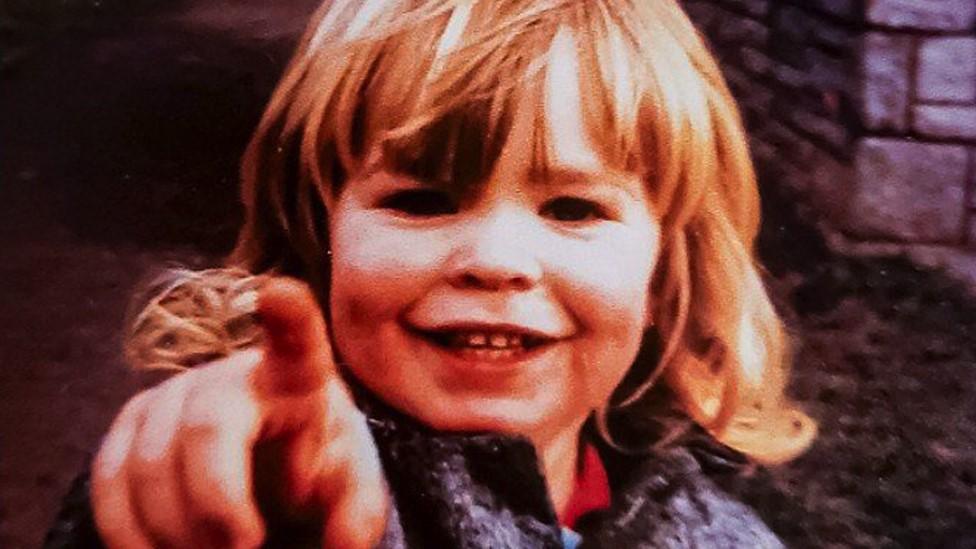
- Published22 February 2024
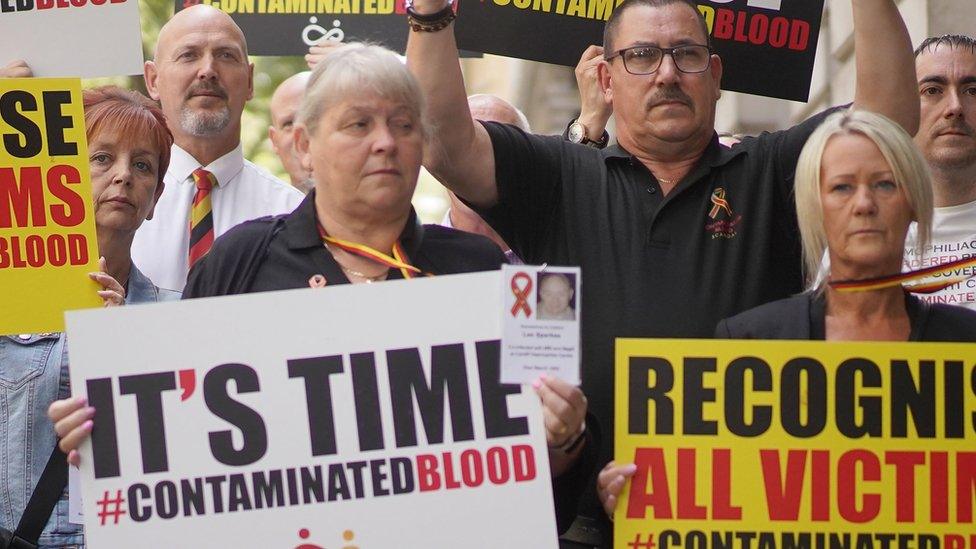
- Published9 November 2022
